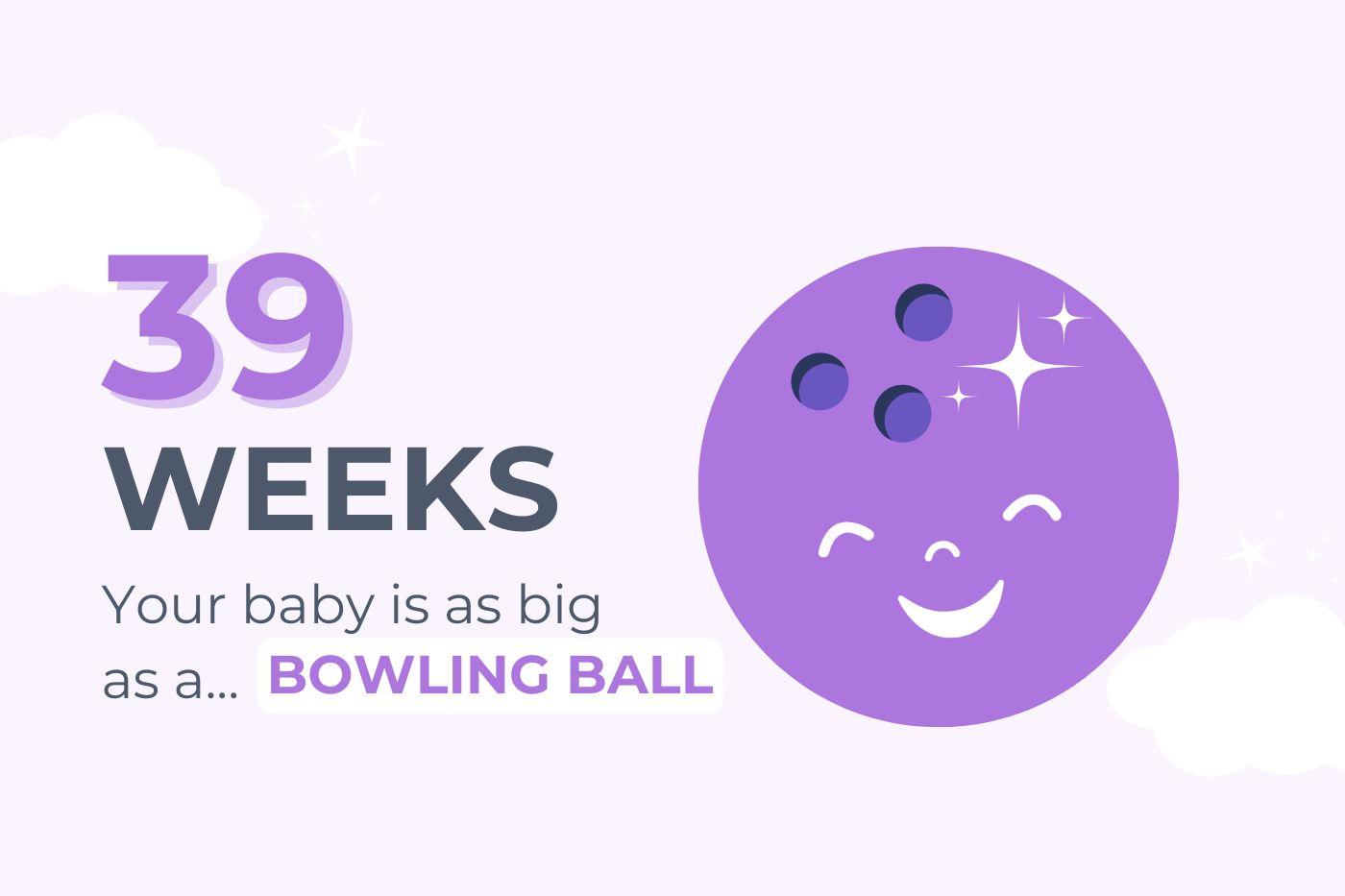PREGNANCY
39 Weeks Pregnant: The End Is in Sight!
Congratulations, your baby is officially full term!

Written by
Dr. Harvey Karp

Your Baby at 39 Weeks
Congratulations—your baby is now officially full term! They likely weigh between 3.2 and 3.6kg (7 to 8 pounds), though their length hasn’t changed much since last week.
At this stage, your baby’s tummy is about the size of a Brazil nut. Just an ounce or so of milk will fill it after birth, but within a few days it will stretch to the size of a small fist (able to hold around 60ml/2oz or more).
Straight after birth, many babies are wide awake for a 4–8 hour alert period before settling into lots of sleep. By the second day, hunger usually kicks in, with babies feeding more frequently—every couple of hours. Some newborns (especially those with jaundice) may need gentle waking and encouragement to feed.
Thankfully, full-term babies are born with reserves—like little camels—carrying extra stores of fluid and nutrients. This helps bridge the gap before your milk “comes in,” usually around day three or four. Signs your baby is feeding well include: your breasts feeling fuller after a couple of days, a little milk leakage, hearing your baby swallow, a wet mouth after feeding, and regular wet nappies with pale-coloured wee.
39 Weeks Pregnant in Months
You’re about 9¾ months pregnant—and full term!
Baby’s Size at 39 Weeks
Your baby is now curled up into a plump, soft bundle—about the size of a bowling ball.
39 Weeks Pregnant: What to Expect
By now, you may notice your weight gain has slowed—or you might even lose a little weight. With your belly so full of baby, there’s less room for food!
Remember, due dates are only estimates. Studies show they can be off by five days or more. Many pregnancies go beyond 40 weeks, and if that happens, your midwife or doctor may discuss your options.
Induction
Some people try “natural” methods to bring on labour, such as nipple stimulation. Castor oil is sometimes suggested, but it can cause severe diarrhoea and dehydration—so always check with your care provider before attempting anything.
If you need a medical induction, your team will monitor you and your baby closely. They may begin by softening the cervix with a prostaglandin gel or pessary. If contractions don’t start, your waters may be broken with a thin probe, which often kickstarts labour. If needed, a hormone drip (oxytocin/Pitocin) may be used to strengthen contractions and help labour progress.
39 Weeks Pregnant To-Do List
- Practise relaxation: Breathing techniques, meditation, hypnobirthing, or yoga can all help you stay calm and focused.
- Keep your car fuelled: You won’t want to stop for petrol while in labour—so always keep enough in the tank for the hospital or birth centre trip.
- Stock up on postpartum supplies: Overnight maternity pads (no tampons or cups), a peri bottle, stool softeners, and soothing sprays or creams will be lifesavers in those first weeks.
- Pack small treats for your midwives/nurses: A box of biccies, chocolates, or another little thank-you is always appreciated.
- Review your birth plan: Go over it with your midwife or doctor and print a few copies to share with the team who’ll be supporting you.
Pregnancy Myth or Fact?
Can sex bring on labour?
Maybe! Research is mixed. Orgasms cause the uterus to contract and release oxytocin (the same hormone that drives labour). Semen also contains prostaglandins, which can help soften the cervix. If you’re low-risk and your waters haven’t broken, sex at this stage is considered safe.
Disclaimer: The information on our site is NOT medical advice for any specific person or condition. It is only meant as general information. If you have any medical questions and concerns about your child or yourself, please contact your health provider. Breastmilk is the best source of nutrition for babies. It is important that, in preparation for and during breastfeeding, mothers eat a healthy, balanced diet. Combined breast- and bottle-feeding in the first weeks of life may reduce the supply of a mother's breastmilk and reversing the decision not to breastfeed is difficult. If you do decide to use infant formula, you should follow instructions carefully.
SHARE THIS ARTICLE
PARENT PICKS
Bestsellers



















